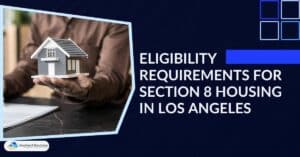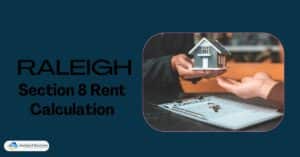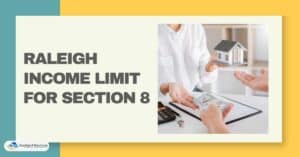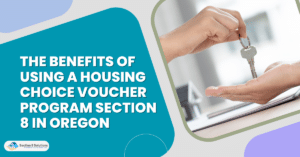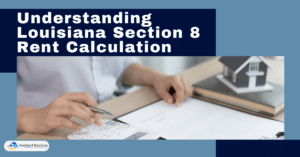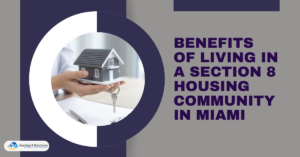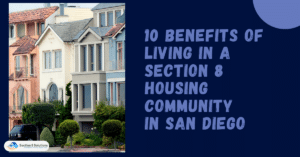LGBTQ+ people and families can live in Section 8 housing without discrimination. LGBTQ+ applicants for Section 8 and other federally supported housing cannot be discriminated against under the Fair Housing Act. The National LGBTQ+ Task Force and Human Rights Campaign help LGBTQ+ people locate safe and inclusive housing.
In this article, we will discuss the legal protections and resources available for LGBTQ+ individuals seeking Section 8 housing, as well as the challenges faced by this community in finding affordable and inclusive housing.
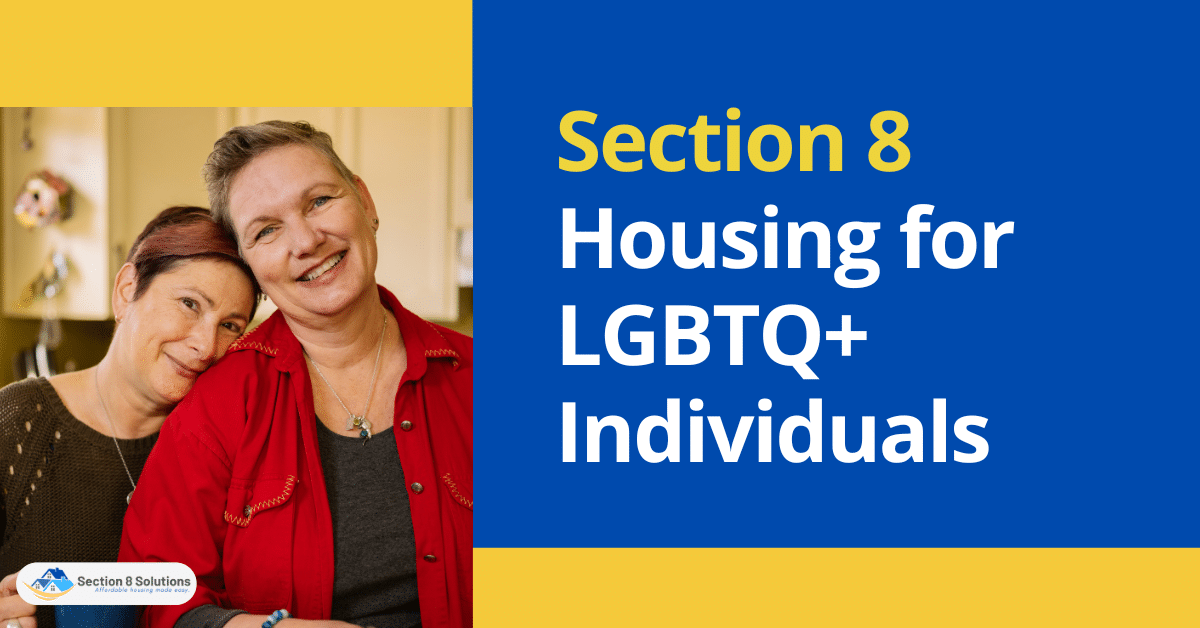
Understanding Section 8 Housing
Section 8 housing is a federal government program designed to help low-income individuals and families obtain safe and affordable housing. The program provides rental assistance to eligible individuals, which can help cover a portion of their monthly rent.
To be eligible for Section 8 housing, individuals and families must meet certain requirements. The program is primarily intended for low-income households, and eligibility is based on the applicant’s income. Generally, individuals or families whose household income is below 50% of the median income for their area are eligible for the program.
Applicants must meet residency, citizenship, and income requirements. Section 8 candidates must be US citizens or legal residents and live in the housing authority’s jurisdiction. Project- or tenant-based Section 8 housing. Project-based Section 8 housing receives rental assistance instead of the tenant. Tenants choose their Section 8 housing.
Both types of Section 8 housing have their benefits. Project-based housing provides more long-term stability and allows tenants to stay in the same unit even if their income increases, while tenant-based housing provides more flexibility and allows tenants to choose the housing that best suits their needs.

Legal Protections for LGBTQ+ Individuals
The Fair Housing Act bans housing discrimination based on race, color, religion, national origin, sex, familial status, and handicap. In 2021, HUD announced that the Fair Housing Act prohibits LGBTQ+ people from housing discrimination based on sexual orientation or gender identity. This means landlords, real estate salespeople, and other housing providers cannot discriminate against LGBTQ+ tenants, buyers, or lenders.
Unfortunately, discrimination against LGBTQ+ individuals in the housing market is not uncommon. Examples of housing discrimination based on sexual orientation or gender identity may include landlords refusing to rent to LGBTQ+ individuals, real estate agents steering LGBTQ+ individuals away from certain neighborhoods, or denying mortgage loans to LGBTQ+ individuals.
The consequences of violating the Fair Housing Act can be severe. Housing providers who violate the law may be subject to fines, damages, and penalties. In addition, the Department of Justice may file a lawsuit against the housing provider, and individuals who have been discriminated against may also file a lawsuit seeking damages.
LGBTQ+ people should know their rights and report housing discrimination. The HUD or a local fair housing organization can help them report discrimination. LGBTQ+ people may protect their housing rights by speaking out.

Challenges Faced by LGBTQ+ Individuals in Finding Housing
Despite legal protections in place, LGBTQ+ individuals continue to face significant challenges when searching for safe and inclusive housing. Discrimination and harassment based on sexual orientation or gender identity can make it difficult to find affordable and welcoming housing options.
One of the most significant challenges is the lack of legal protection in some states. While the Fair Housing Act offers protections against discrimination based on sexual orientation and gender identity at the federal level, not all states have laws that offer these protections at the state level. This leaves many LGBTQ+ individuals vulnerable to housing discrimination and harassment.
Housing discrimination can have negative effects on LGBTQ+ individuals and families, including housing insecurity, financial strain, and mental health issues. Discrimination can also contribute to a lack of access to other resources such as healthcare, education, and employment opportunities.
LGBTQ+ housing discrimination persists, according to statistics. 25% of LGBTQ+ homebuyers and sellers in 2020 faced discrimination, according to the National Association of Gay and Lesbian Real Estate Professionals. 19% of transgender people were denied housing and 11% were evicted, according to a National Center for Transgender Equality report.

Resources for LGBTQ+ Individuals Seeking Section 8 Housing
LGBTQ+ individuals seeking safe and affordable housing may face unique challenges, but there are resources available to help them navigate the process. In this section, we will highlight some of the organizations and websites that provide assistance and support for LGBTQ+ individuals seeking Section 8 housing.
1. National LGBTQ+ Task Force
The National LGBTQ+ Task Force is a non-profit organization that was founded in 1973. It is the oldest national organization dedicated to the advancement of LGBTQ+ rights and is committed to achieving social, economic, and racial justice for all LGBTQ+ individuals. The organization works towards these goals through a variety of programs and initiatives, including its work on housing rights for LGBTQ+ individuals.
The National LGBTQ+ Task Force addresses LGBTQ+ housing discrimination. The organization promotes LGBTQ+ housing rights and educates the public about housing discrimination. They help LGBTQ+ people find affordable and safe accommodation.
The National LGBTQ+ Task Force provides advocacy, education, and support for LGBTQ+ housing seekers. They offer expertise for discrimination, eviction, and landlord conflicts. The organization trains housing providers, landlords, and policymakers to understand LGBTQ+ issues and provide safe and inclusive housing.
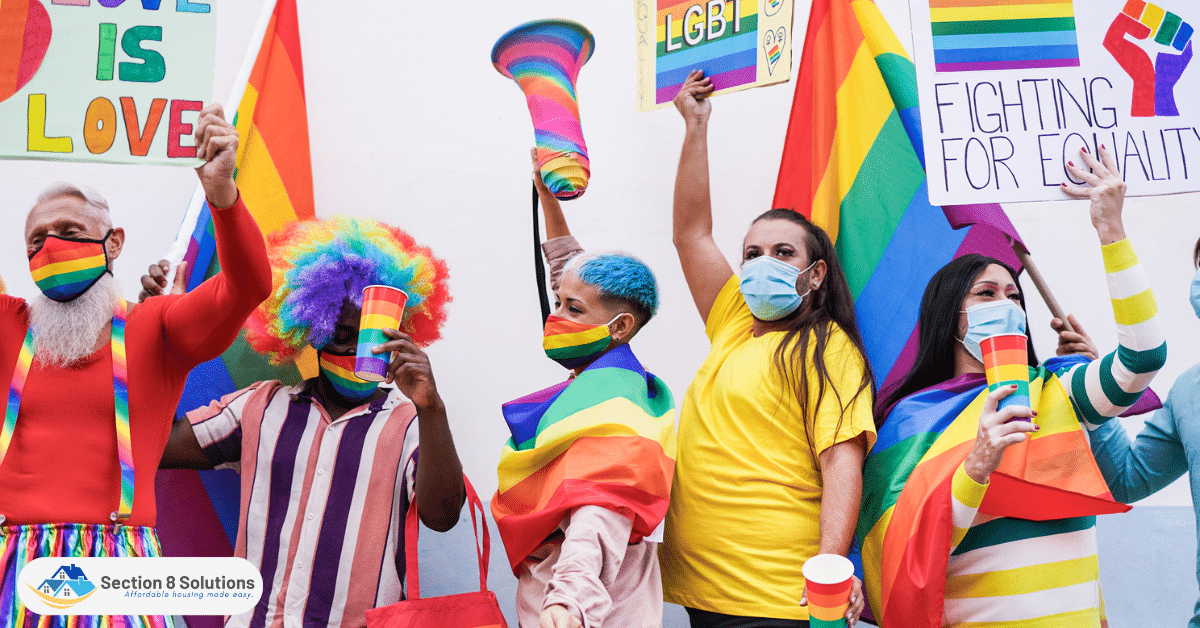
2. Human Rights Campaign
In addition to their advocacy work, the Human Rights Campaign has also developed a comprehensive online resource center for LGBTQ+ individuals seeking safe and inclusive housing. This resource center provides a range of information, including guides on housing discrimination, legal protections for LGBTQ+ individuals, and advice on how to find LGBTQ+-friendly housing.
The foundation maintains a nationwide directory of affordable LGBTQ+-friendly housing, community facilities, and support groups. The Human Rights Campaign examines LGBTQ+ housing issues including rental and home-buying discrimination. Their LGBTQ+ housing services are informed by this study.
Overall, the Human Rights Campaign is a valuable resource for LGBTQ+ individuals seeking Section 8 housing, as well as for anyone interested in promoting the rights of the LGBTQ+ community.
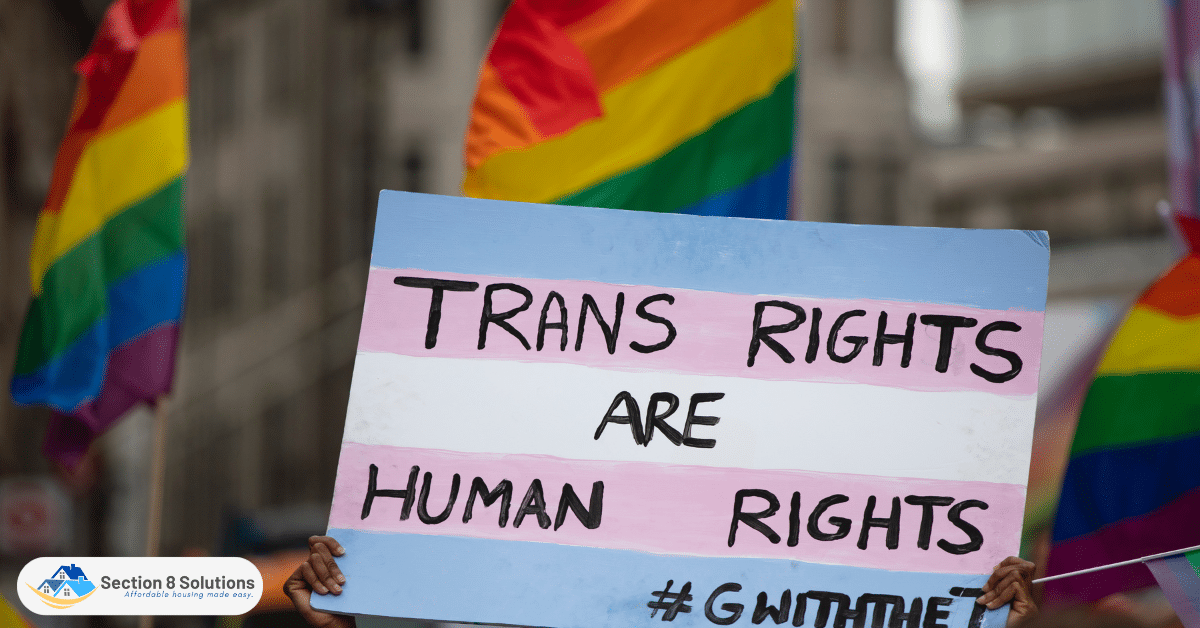
3. Other Resources
There are also a number of other organizations and websites that provide support and assistance for LGBTQ+ individuals seeking Section 8 housing, including:
- The National Center for Transgender Equality
- The Transgender Law Center
- The LGBT National Help Center
- The True Colors Fund
- The Trevor Project
These organizations offer a range of resources and support for LGBTQ+ individuals seeking affordable and safe housing, including legal support, advocacy, and education. By reaching out to these organizations and utilizing the resources they provide, LGBTQ+ individuals can take steps toward finding safe and inclusive housing.

Conclusion
LGBTQ+ individuals face unique challenges when searching for safe and inclusive housing, including discrimination and lack of legal protections. However, there are resources and organizations available to provide support and assistance to LGBTQ+ individuals seeking Section 8 housing. We have discussed the eligibility requirements and benefits of Section 8 housing, as well as the legal protections provided by the Fair Housing Act.
We also included the National LGBTQ+ Task Force, the Human Rights Campaign, and other LGBTQ+ housing resources. LGBTQ+ people should know their legal rights and get help finding safe and inclusive housing. Together, we can make the housing market more fair and inclusive.


